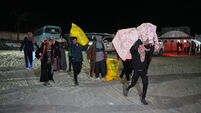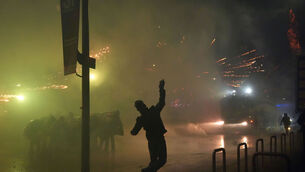Judges grill White House lawyers on Donald Trump travel ban

Donald Trump's travel ban has faced its toughest test yet, with a panel of appeal court judges hammering the US government's arguments that it was motivated by terrorism fears.
But the judges also directed pointed questions to a lawyer who claimed the ban targeted Muslims unconstitutionally.














